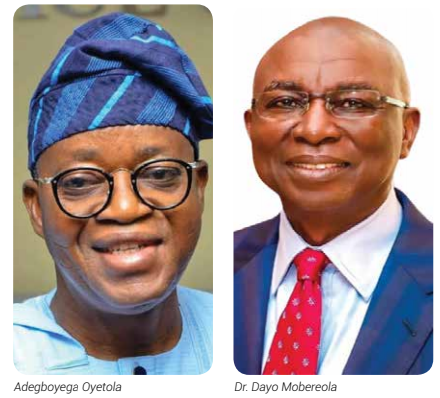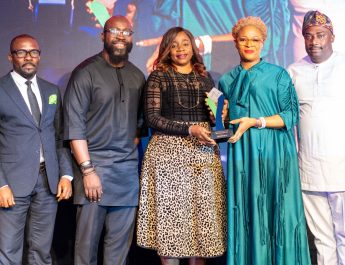Nigerian Maritime Administration and Safety Agency (NIMASA) reiterates its commitment to digital reform to enhance regulation, shipping development and revenue optimization amid rumours of concessioning of its operations
By Patrick Ogboru
The attention of the Management of the Nigerian Maritime Administration and Safety Agency (NIMASA) was recently drawn to some sponsored publications falsely alleging that the Agency had embarked on a concession of its operations.
According to a statement by NIMASA, “The Management wishes to categorically state that there is no iota of truth in these claims. This is the hand-work of some external and internal elements who have conspired to benefit from the current porous system.
“To set the records straight, following a comprehensive internal review of operational systems, the current leadership of NIMASA resolved to embrace technology as a means of enhancing the Agency’s capacity to deliver on its regulatory mandate more effectively and to bring into the coffers of government additional revenue to ensure funds due government does not end up in private hands.
“A pivotal innovation in this regard is the Maritime Enhanced Monitoring System (MEMS). This system brings digital traceability to the core of Nigeria’s maritime operations. MEMS provides real-time visibility into vessel movements, operational logs, and regulatory interactions. Through automated alerts, smart invoicing, and centralized data integration, NIMASA can now detect, document, and respond to maritime activities with greater precision and efficiency—eliminating unnecessary bottlenecks while strengthening compliance.
“The additional recipients targeted are waste reception services, a routine operation for both domestic and international vessels that have traditionally lacked proper tracking, resulting in unmonitored activities and significant revenue losses. With MEMS, each waste offload can be logged, time-stamped, and automatically billed, converting previously missed opportunities into a consistent revenue stream while ensuring environmental standards are met.
“Marine pollution control, another critical area of NIMASA’s mandate, has similarly been constrained by limited digital tools. In the absence of satellite tracking and automated reporting, pollution events often go unnoticed or are reported too late to mitigate their impact. With the integration of modern surveillance systems, digital logbooks, and real-time alerts, NIMASA can now respond swiftly to such incidents, recover environmental damages, and hold polluters accountable—both legally and financially.
“It is important to emphasize that past revenue shortfalls experienced by the Agency mainly stemmed from outdated manual processes, fragmented data systems, and insufficient digital enforcement mechanisms which allowed some external elements to capitalize on the loopholes for personal gains”.
The agency also noted that the current reforms being implemented were focused squarely on overcoming limitations. It stressed that by investing in digital infrastructure and streamlining monitoring systems, the agency was positioning itself to fulfill its statutory obligations with transparency, efficiency, and accountability.
NIMASA also advised that the public should disregard all misleading reports about the agency, and lend support for NIMASA’s transformation.
In a related development, as the August commencement date for the disbursement of Cabotage Vessels Financing Funds (CVFF) draws nearer, NIMASA has assured interested indigenous ship owners that the Fund can be accessed at a single digit interest rate.
The Director General of the agency, Dr Dayo Mobereola, made the pledge on Monday, May 12th, 2025 during a one- day Stakeholders’ forum on the operationalisation of CVFF held in Lagos.
According to Mobereola, the CVFF is not a grant, but a strategic investment in Nigeria’s maritime future.
He therefore urged all prospective applicants to follow the established procedures through partner financial institutions.
“The primary objective of bringing you together today is to formally announce and discuss the imminent disbursement of the CVFF and to demonstrate the established clear frameworks for transparent, efficient, and impactful fund utilization that will empower indigenous shipowners.
“I urge all prospective applicants to follow the established procedures through our partner financial institutions.
“The CVFF is not a grant program but a strategic investment in Nigeria’s maritime future.
“It is a loan with single digit interest. We will monitor fund utilization to ensure they achieve the intended objectives.”
Mobereola further stated that NIMASA has secured necessary approval that would facilitate the disbursement of the fund to successful beneficiaries.
He also stated that apart from boosting local content in the maritime sector, the CVFF disbursement would also create employment opportunities for Nigerian seafarers.
“The CVFF was established under the Coastal and Inland Shipping Act of 2003 to provide financial support to indigenous shipowners for vessel acquisition and capacity development.
“Despite nearly two decades of regulatory challenges and bad experience of the past, I am delighted to announce that under President Bola Tinubu’s leadership and with the support of the Minister of Marine and Blue Economy, Gboyega Oyetola, we have secured the necessary approvals for disbursement.”
“This disbursement will be transformative for our industry as it stands to empower indigenous shipowners to compete favourably, boost local content in the maritime sector, create employment opportunities for Nigerian seafarers and strengthening ancillary maritime services.”
Speaking earlier, the Executive Director, Maritime Labour and Cabotage Services, Jubril Abba, said the disbursement of CVFF underscores the agency’s commitment to empowering local shipowners and operators.
He also disclosed that the disbursement would reduce the nation’s reliance on foreign vessels by providing accessible financing options.
“The CVFF is designed to benefit indigenous ownership of marine assets that would be deployed to boost activities within the Nigerian Cabotage space.
“It is with a deep sense of appreciation that we recognise the presence of shipping companies and Shipowners who have taken time out of their tight schedules to honour our invitation to this engagement session.
“Your presence here, we are certain, would add excellent value to the insightful discussions.
“This also underscores NIMASA’s unwavering commitment to empowering local shipowners and operators, stimulating domestic maritime commerce, and reducing our reliance on foreign vessels by providing accessible financing options.”
“The potential of the nation’s Marine and Blue economy when harnessed, would be a significant contributor to the nation’s GDP and catalyse activities in other sectors that would lead to rapid economic growth and development, in line with the renewed Hope Agenda of this Administration.”
Abba however, called on stakeholders to rally round NIMASA in achieving a shared vision for a vibrant and self-reliant maritime sector.
“The clarion call is for collaborative partnerships to ensure the success of this journey to harness the full potential of our domestic shipping and ensure the sustainable growth of the maritime industry.
“As I close my remarks, we call on all stakeholders to rally round NIMASA as we pledge our renewed dedication, innovation, and partnership in achieving a shared vision for a vibrant and self-reliant maritime sector.”
In his remarks, the President of the Nigerian Chamber of Shipping, Aminu Umar, and other industry stakeholders commended the Minister of Marine and Blue Economy, Adegboyega Oyetola, and the management of NIMASA for their efforts in facilitating the disbursement of the funds.
Former Director General of NIMASA, Temisan Omatseye, who had previously doubted the realization of the CVFF, also joined others in commending the NIMASA Management and the Honourable Minister of Marine and Blue Economy.
Other issues being addressed by NIMASA in collaboration with the PLIs include insurance, fund security, flexible tenures, and the reduction of sundry fees to the barest minimum at subsidized rates.



